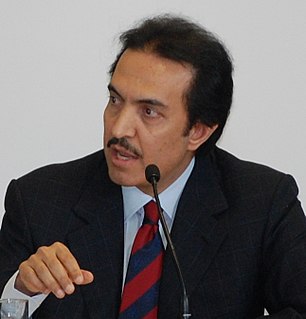A Quote by Ramesh Srinivasan
If you share information widely, but you present that information in ways that fits your own view, you're actually still misrepresenting. So instead what you should do is figure out ways to build systems that allow people to experience and classify their information in ways that are meaningful for them.
Related Quotes
As recently as the '70s, people were forced to see information that they didn't agree with in newspapers and the like. Now there is so much information you really can build your own walled garden that just has the stuff that reinforces your view. I think it applies to all of us. People are really going into these separate camps, and that's the big social challenge in this age of too much information. How do we crack that and create a common dialogue?
We believe that we live in the 'age of information,' that there has been an information 'explosion,' an information 'revolution.' While in a certain narrow sense this is the case, in many important ways just the opposite is true. We also live at a moment of deep ignorance, when vital knowledge that humans have always possessed about who we are and where we live seems beyond our reach. An Unenlightenment. An age of missing information.
We have to remember that information sharing is restricted by legal barriers and cultural barriers and by the notion that information is power and therefore should be hoarded so if you share information you can extract something in exchange. In today's digital online world, those who don't share information will be isolated and left behind. We need the data of other countries to connect the dots.
I think we are definitely suffering from an information overload, but I believe that there is going to be better and better ways of organizing that information and processing it so that it will enhance your daily life. I just think that technology and information, it's overwhelming at the moment, but it's really going to make life better.
Many more children observe attitudes, values and ways different from or in conflict with those of their families, social networks,and institutions. Yet today's young people are no more mature or capable of handling the increased conflicting and often stimulating information they receive than were young people of the past, who received the information and had more adult control of and advice about the information they did receive.
New information technologies-including email, the web, and computerized blast-faxes and phone calls-have fundamentally changed the landscape of political competition in modern democracies. They've done so in three ways: by dramatically boosting the access of individuals and special interests to politically potent information, by making it easier for such people to coordinate their activities and exert political power, and by greatly increasing the pace of events within our political systems.































